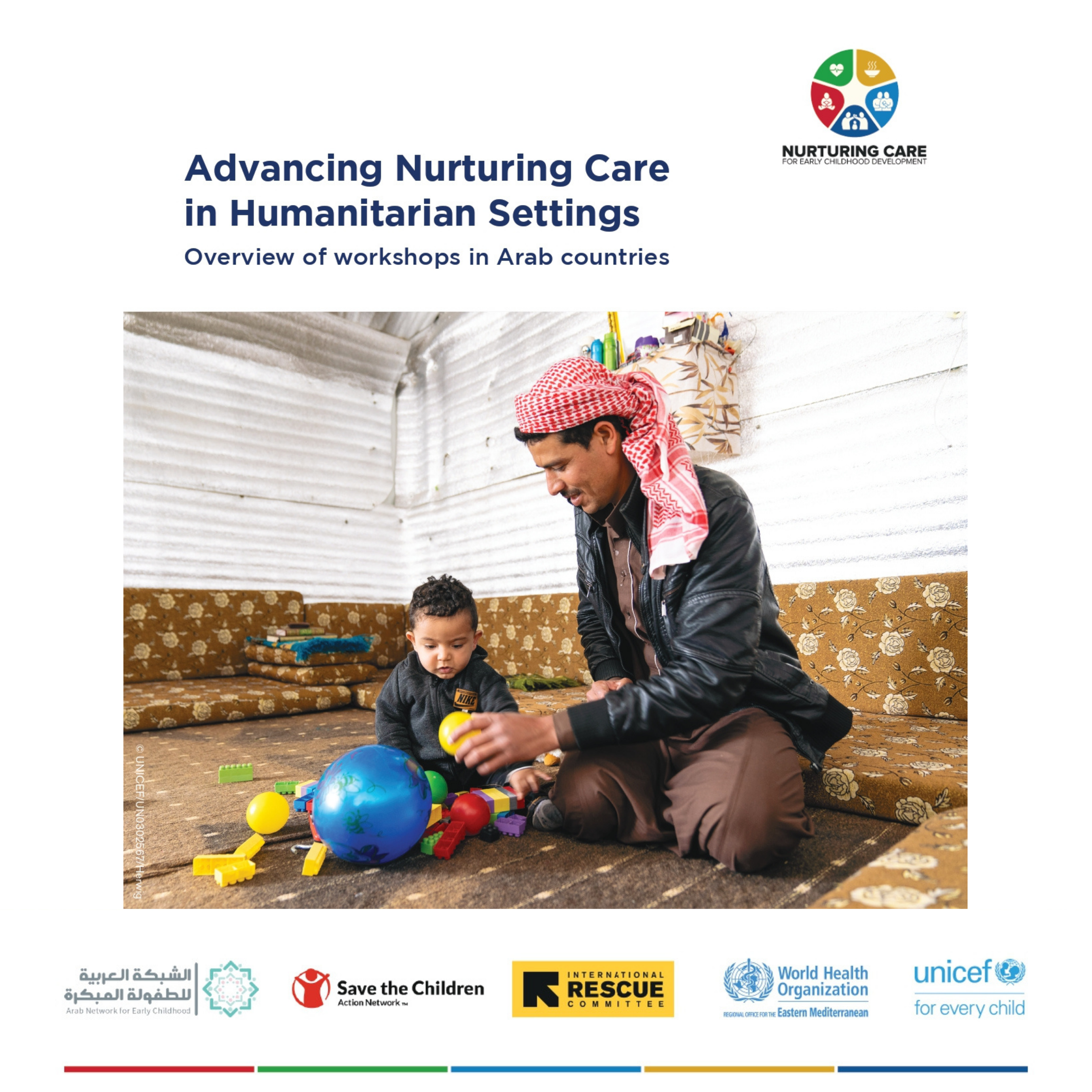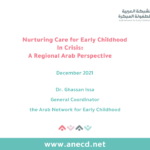We Communicate For Happy Children
 ANECD Update #25
ANECD Update #25 
Advancing Nurturing Care in Humanitarian Settings, Overview of workshops in Arab countries: Iraq, Jordan, Palestine, and Syria
Amman/Beirut/Cairo, 17 November 2022 – Today, the Arab Network for Early Childhood (ANECD), the International Rescue Committee (IRC), Save the Children (SC), UNICEF, and the World Health Organization (WHO) released a new report titled ‘Advancing nurturing care in humanitarian settings: Overview of workshops in Arab countries.’ The report shares learnings from a series of workshops held by partners in 2021 to advance commitment to Early Childhood Development (ECD) in the region, and highlights efforts by Iraq, Jordan, Palestine, and Syria to ensure nurturing care for children living in crisis settings.
The early years of life are critical for a child’s development. However, millions of infants and young children in the Region continue to face huge challenges to survive and thrive.
Children affected by crisis, particularly those under the age of 5 years, face multidimensional risks to their development, in large part because they are deprived of stable and nurturing environments. Many are exposed to elevated levels of insecurity, violence, and stress due to war and conflict, forced displacement, migration, and resettlement. These experiences are likely to result in infants, young children and their caregivers lacking access to preventive and curative health services, high risk for malnutrition, and other potential risks arising from socioeconomic adversity, extreme poverty and climate change.
In late 2020, the five organizations developed an advocacy brief entitled ‘Nurturing care for children living in humanitarian settings,’ to better ensure children in crisis settings receive the care they need. The organizations came together again in 2021 to foster country-level action by supporting National Task Teams in Iraq, Jordan, Palestine, and Syria to organize multisectoral and multistakeholder workshops.
These workshops resulted in partners from government and non-government stakeholders across health, education, and protection sectors agreeing on priority actions to provide children with nurturing care within each context. These actions focused on policy implementation, data collection and its use, multisectoral collaboration, governance mechanisms and increased sustainable investments.
The initiative laid a foundation for mobilizing national and international partners across different sectors to:
These workshops have produced concrete outcomes in the countries. For example:
• In Iraq, the ECD Strategy was finalized and published by the Government of Iraq, in partnership with UNICEF.
• In Palestine, the existing ECD Strategy was expanded to include a strengthened ECD Governance Committee; a critical step given governance and coordination play such an integral role in ensuring quality services for ECD.
• In Northwest Syria, the Education Cluster added ECD programming to its Education Strategy for 2021-2023. This is the first time ECD was indicated as an Education Cluster priority there, catalyzing new funding from the Protection Cluster.
While the report provides a unique resource for the global community to use as a template to be replicated for the advancement of this work, there remains a critical need for national and subnational leadership to truly optimize ECD in humanitarian settings, for donors to provide long-term and sustainable ECD funding, and for all relevant actors to work together towards a common ECD vision of supporting children, especially the most vulnerable and those living in crisis settings.
Read the full reports in English

The General Coordinator of the Arab Network for Early Childhood (ANECD), Dr. Ghassan Issa, gave a presentation during the workshops in the four Arab countries to articulate the Arab regional perspective on nurturing care for early childhood in crises. The main themes that the presentation encompassed are:
Your e-mail may have been automatically added to other ECD lists.
We will be happy if you stay with us. However, you may unsubscribe at your convenience.
